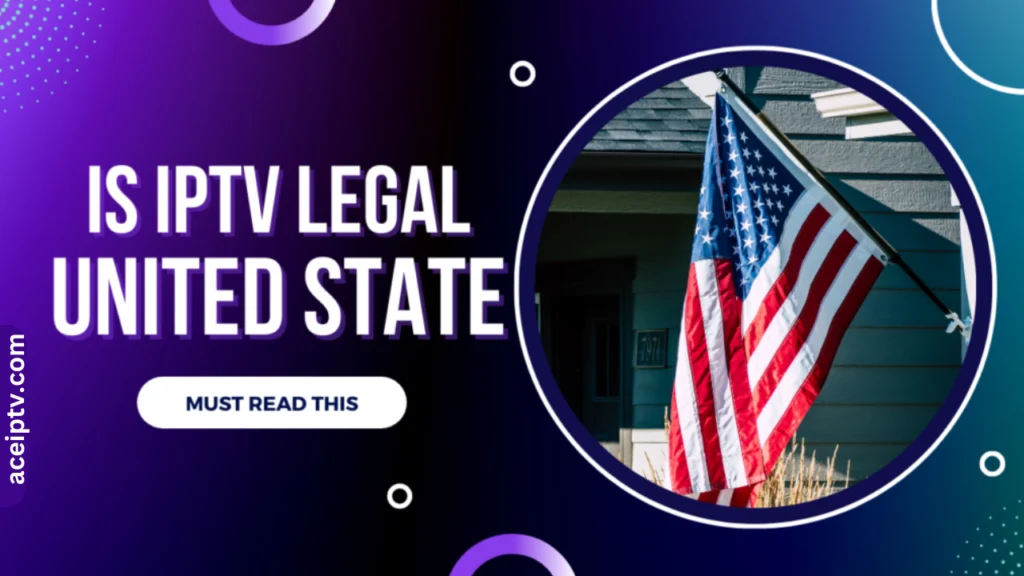
Table of Contents
I. Introduction to IPTV in the United States
A. Definition of IPTV
Internet Protocol Television (IPTV) refers to the delivery of television content over internet protocol (IP) networks. Unlike traditional broadcast and cable television, which transmit signals directly to a television, IPTV uses the internet to stream content.
B. The Rise of IPTV Services in the United States
IPTV services have surged in popularity in the United States, offering a wide range of channels and on-demand content at competitive prices. The convenience and flexibility of accessing content across multiple devices have contributed to this growth.
C. How IPTV Differs from Traditional Cable and Satellite TV
IPTV differs from traditional cable and satellite TV in several ways:
- Transmission: IPTV streams content over the internet, while cable and satellite use dedicated physical connections and satellite signals.
- Interactivity: IPTV often includes interactive features, such as video on demand (VOD), time-shifting, and live television with pause and rewind capabilities.
- Flexibility: IPTV services can be accessed on various devices, including smartphones, tablets, smart TVs, and computers.
II. Legal Framework Surrounding IPTV in the United States
A. Copyright Laws and IPTV Services
Copyright laws play a crucial role in the IPTV landscape. Legal IPTV providers must obtain licensing agreements from content creators and copyright holders to distribute their content.
B. Regulations Governing IPTV Content
The Federal Communications Commission (FCC) and other regulatory bodies oversee the distribution of IPTV content, ensuring that providers comply with broadcasting standards and content regulations.
C. Recent Legal Cases Involving IPTV Providers
Several high-profile legal cases have highlighted the challenges in regulating IPTV services. These cases often involve disputes over unauthorized streaming and distribution of copyrighted content.
III. Challenges to IPTV Legality
A. Piracy Issues in the IPTV Industry
Piracy remains a significant challenge in the IPTV industry. Unauthorized IPTV services often provide access to copyrighted content without proper licensing, leading to legal complications.
B. Risks Associated with Using Unauthorized IPTV Services
Consumers using unauthorized IPTV services face several risks, including:
- Legal Action: Users may be subject to fines and legal action for accessing pirated content.
- Security Threats: Unauthorized services may expose users to malware, phishing attacks, and other cyber threats.
- Service Reliability: These services often lack reliable customer support and are prone to sudden shutdowns.
C. Consumer Rights and Protections in Relation to IPTV
Consumers have rights and protections under the law when using IPTV services. It is essential for users to understand these rights and choose legal providers to avoid potential legal and security issues.
IV. Enforcement Actions Against Illegal IPTV Providers
A. Measures Taken by Government Agencies to Combat Illegal IPTV
Government agencies, such as the FBI and FCC, actively combat illegal IPTV operations through raids, shutdowns, and legal prosecutions.
B. Consequences for Providers Found to Be in Violation of the Law
Providers found distributing illegal IPTV services face severe penalties, including hefty fines and imprisonment. These actions aim to deter illegal operations and protect intellectual property rights.
C. How Consumers Are Affected by Crackdowns on Illegal IPTV Services
Consumers using illegal IPTV services may experience disruptions, as these services are often targeted by enforcement actions. Users may also face legal repercussions and lose access to paid subscriptions without refunds.
V. Navigating the Legal Landscape of IPTV in the United States
A. Tips for Consumers on Choosing Legal IPTV Services
- Verify Licensing: Ensure the provider has the necessary licenses to stream content.
- Research Reputation: Look for reviews and ratings to gauge the reliability of the service.
- Check for Transparency: Legitimate providers are transparent about their licensing and content sources.
B. Understanding the Terms of Service for IPTV Providers
Consumers should thoroughly read and understand the terms of service of any IPTV provider to know their rights and the provider’s obligations.
C. Resources for Staying Informed About IPTV Legality in the United States
- FCC Website: The FCC provides updates on regulations and legal issues related to IPTV.
- Industry News: Follow industry news sources for the latest developments and legal cases in the IPTV space.
- Legal Advice: Consult legal experts if in doubt about the legality of a specific IPTV service.
Summary
In conclusion, the legality of IPTV in the United States is a complex and evolving issue. While there are legal IPTV services available, consumers must be aware of the risks associated with using unauthorized providers. By staying informed and making informed choices, individuals can enjoy IPTV content legally and responsibly.
FAQs
Is IPTV legal in the United States? Yes, there are legal IPTV services available in the US, but consumers must ensure they are using authorized providers.
What are the consequences of using illegal IPTV services? Users of illegal IPTV services may face legal action, as well as risks such as malware and fraud.
How can I determine if an IPTV service is legal? Consumers should verify that the IPTV provider has the proper licensing and permissions to distribute content in the US.
